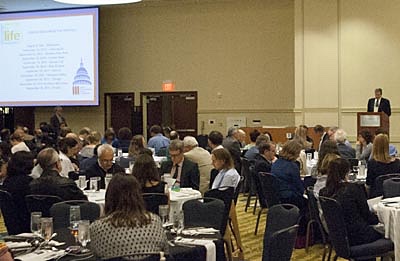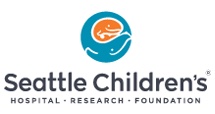Mitochondrial Medicine 2016 Symposium to Bring Science, Clincal, Patient Communities Together in Seattle

 The Pittsburgh, Penn. based United Mitochondrial Disease Foundation (UMDF) will celebrate its 20th anniversary at the Mitochondrial Medicine 2016 Symposium this week in Seattle, Wash., according to a press release provided to Mitochondrial Disease News.
The Pittsburgh, Penn. based United Mitochondrial Disease Foundation (UMDF) will celebrate its 20th anniversary at the Mitochondrial Medicine 2016 Symposium this week in Seattle, Wash., according to a press release provided to Mitochondrial Disease News.
Currently recognized as the world’s foremost mitochondrial disease symposium, just 10 years ago the UMDF meeting attracted only a handful of exhibitors and fewer than 200 scientific attendees. 
This year, the symposium will feature more more exhibitors than previous space allowed. More than 600 attendees from nearly every state in the US and more than 15 different countries worldwide are expected to attend.
The UMDF’s annual gatherings are widely considered the most important meetings for the field of mitochondrial medicine because the unique format brings patients, families and caregivers together with scientific and medical experts.
Clinical and basic science researchers from diverse scientific fields that include biochemistry, genetics, neurosciences, cardiology, cancer, diabetes, nephrology, hematology, pediatrics and aging research will share knowledge regarding mitochondria and mitochondrial disease
The symposium encourages and cultivates networking among physicians, researchers, patients and families. A four-day scientific and clinical program, plus a two-day patient and family program are included in the event.
 The Mitochondrial Medicine 2016 scientific program will be held at the Doubletree by Hilton Hotel Seattle June 15-18. The the Family & LHON Program will be June 17-18, 2016 at the same location.
The Mitochondrial Medicine 2016 scientific program will be held at the Doubletree by Hilton Hotel Seattle June 15-18. The the Family & LHON Program will be June 17-18, 2016 at the same location.
Seattle Children’s Hospital is a presenting sponsor.
At the symposium, patients and family members will be able to meet others who share their quest for greater knowledge about mitochondrial disease. They may be parents or an individual with similar experiences, or someone who lives close to them. Attendees will be offered a range of opportunities to meet some of the top clinical mitochondrial specialists from around the world.
The UMDF will award $500,000 in research grants aimed at basic science, clinical studies and post-doctoral fellowships. Over the last 20 years, UMDF has funded more than $11 million in projects geared to find a cure for mitochondrial disease – making the organization the largest non-government funder of mitochondrial disease treatments and cures.
UMDF will honor volunteers who have worked to fulfill the organization’s mission. All awards are to be presented at the 20th Anniversary Banquet on 7 p.m., June 17, in the hotel Grand Ballroom.
Registration for scientific and family programs will be available on site. A special parking rate for UMDF attendees is $12 per day for hotel guests or $10 per day for locals attending the event.
For more information about Mitochondrial Medicine 2016, visit the link.
Mitochondrial disease is an inherited chronic illness centered in the mitochondria: tiny organelles composed of enzymes packages that transform nutrients into cellular energy in almost every cell in the body. Mitochondria are responsible for creating more than 90% of cellular energy. They are necessary to sustain life, and support growth and organ function. According to UMDF, a child is born with mitochondrial disease every 30 minutes.
Mitochondrial failure causes cell injury that leads to cell death; when multiple organ cells die, organ failure follows.
Mitochondrial disease, congenital or developed later in life, causes debilitating physical, developmental, and mental problems. Symptoms can include poor growth, loss of muscle coordination, muscle weakness and pain; seizures, vision and hearing loss, gastrointestinal issues, learning disabilities, and organ failure.
In adults, many diseases related to aging have been associated with mitochondrial function defects including type 2 diabetes, Parkinson’s disease, atherosclerotic heart disease, stroke, Alzheimer’s disease and some cancers.
It is believed that medicines or other toxic substances can potentially injure mitochondria and trigger mitochondrial disease, which can show up very differently from individual to individual. In families, just one member could be affected or many over a number of generations.
There is no reliable and consistent means of diagnosis, largely because mitochondrial disorders affect each individual differently. Mitochondrial disease patients have long awaited a breakthrough in the development of treatments that can alleviate symptoms, slow disease progression, and ultimately provide a cure.
The UMDF focuses on bringing people and resources together to create synergistic impact on diagnoses, treatments and cures for mitochondrial disease. Since 1996, the UMDF has funded several research projects, provided support to affected individuals and families, and stood at the forefront of the search for breakthroughs to unlock the secrets of mitochondrial disease prevention and cure.






